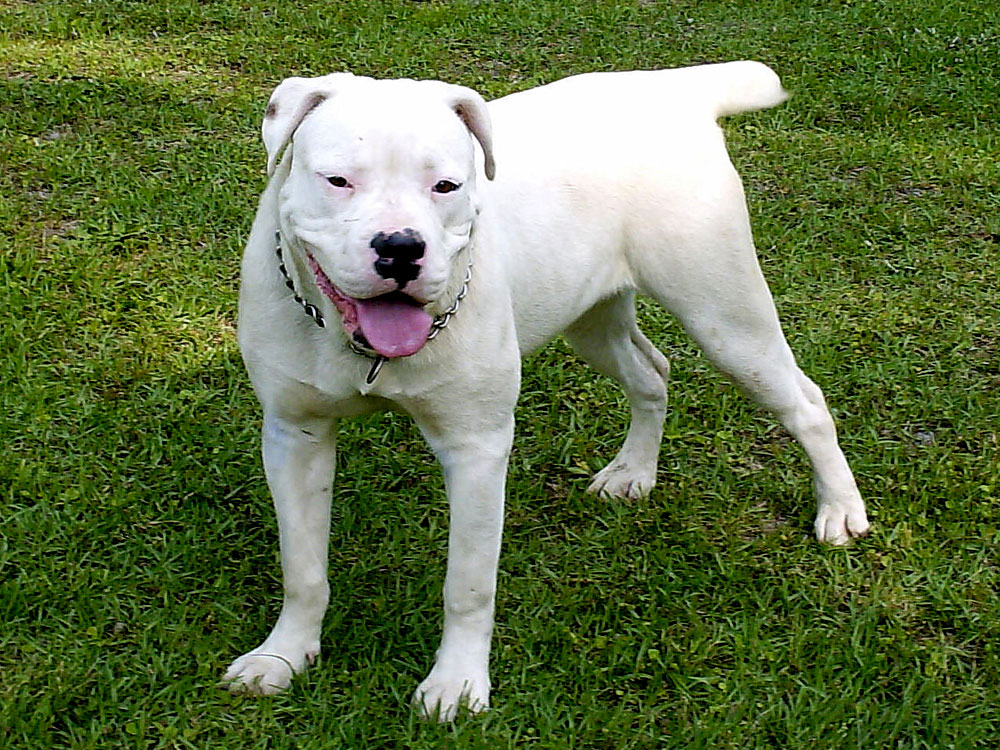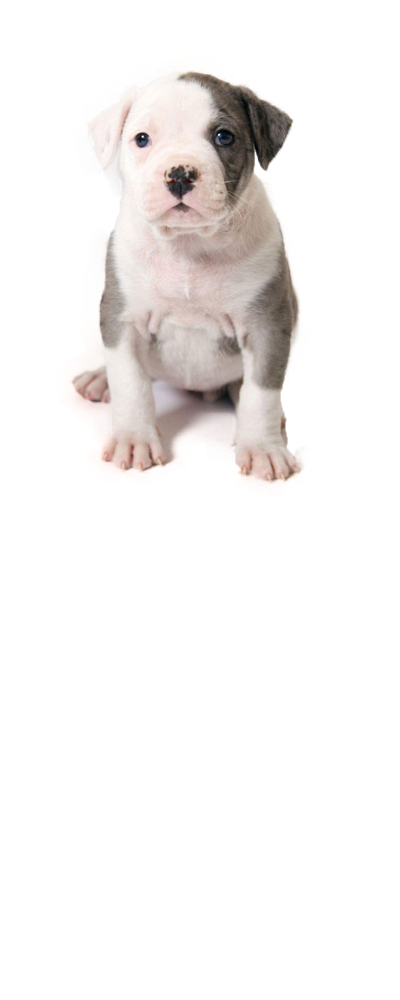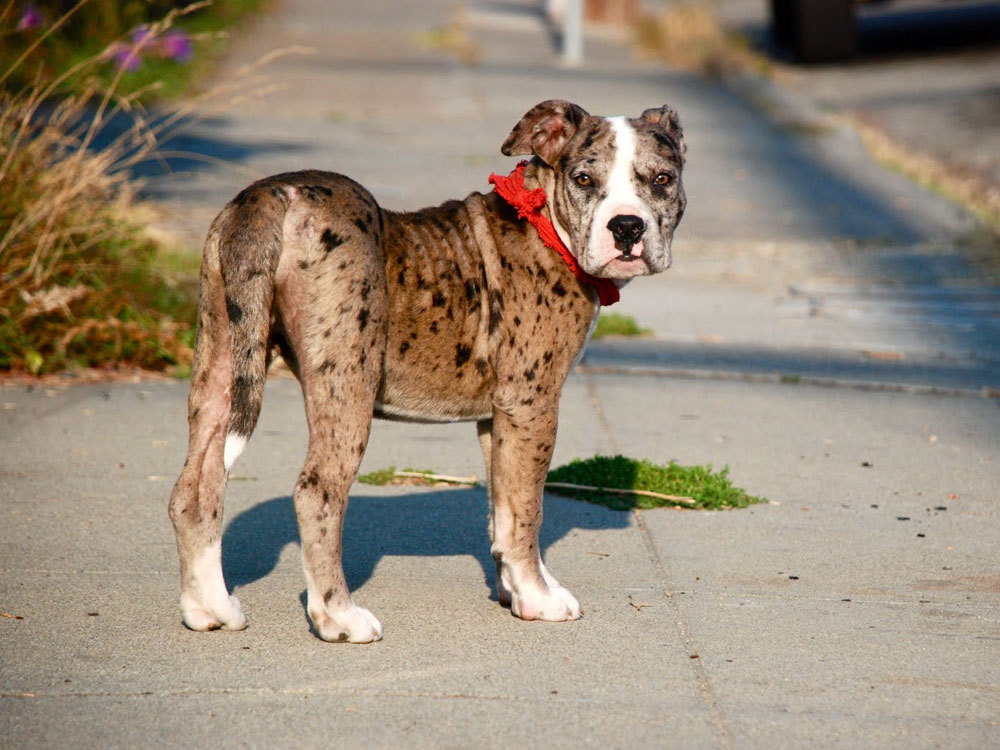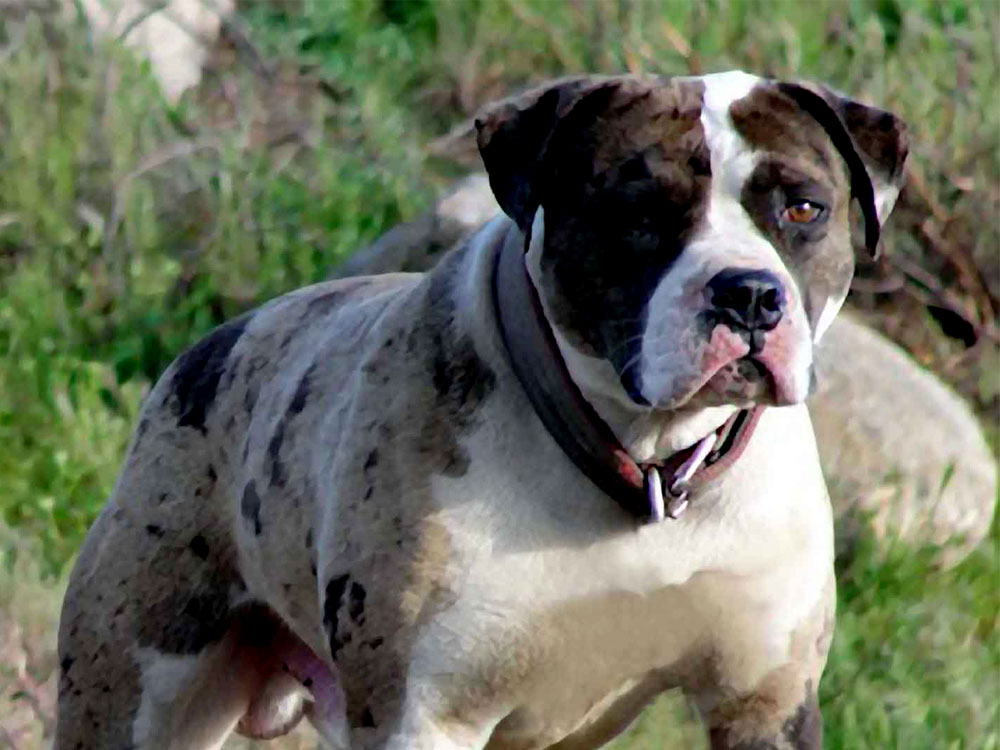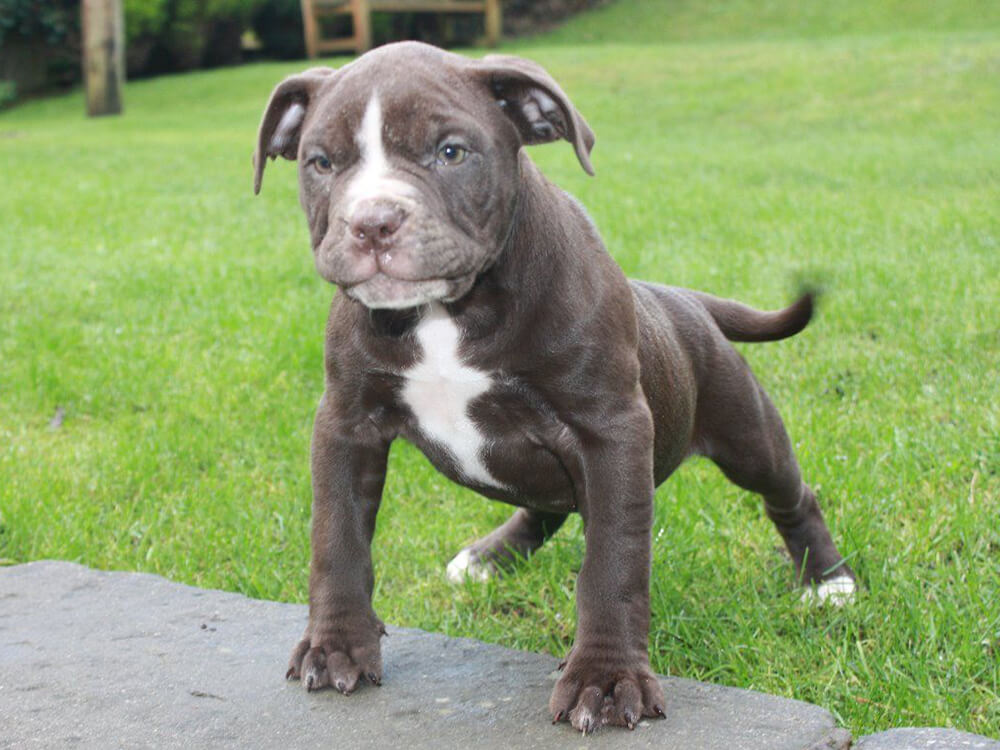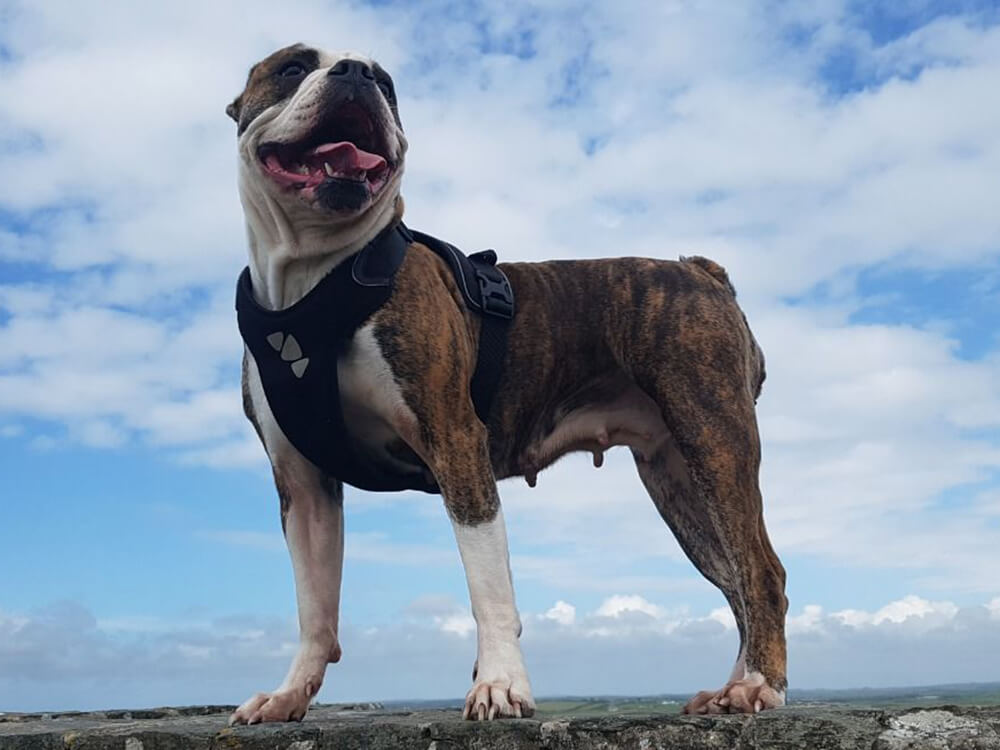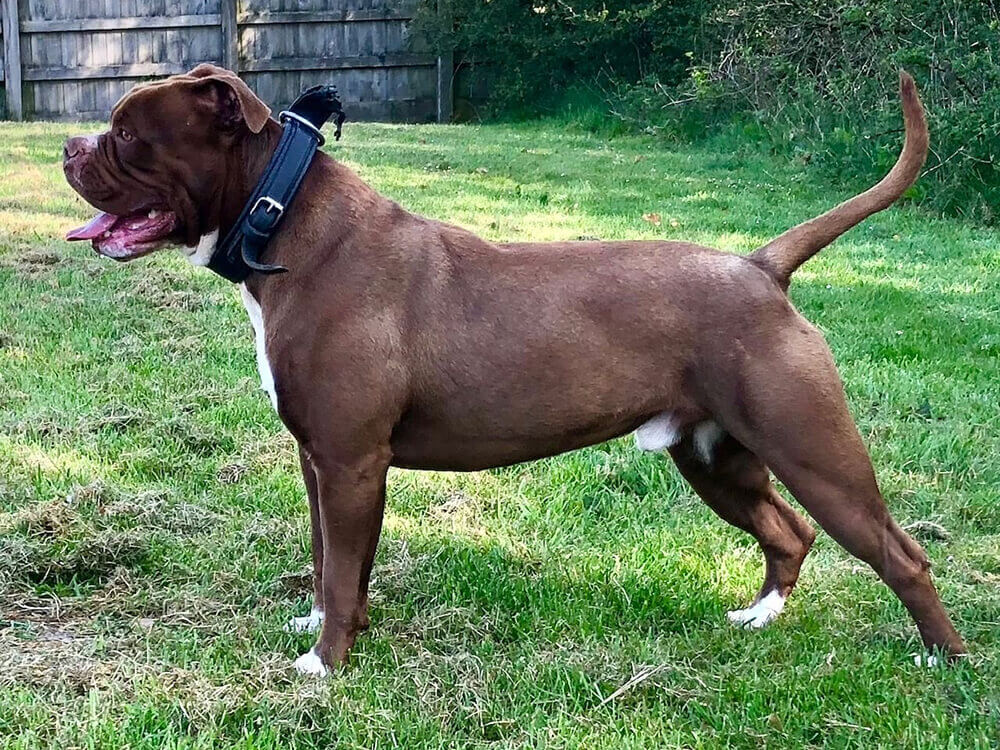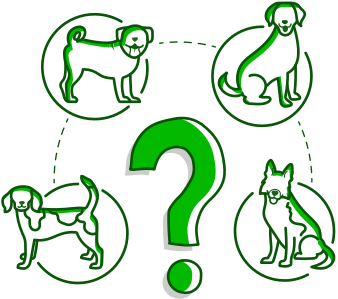
History
The Alapaha Blue-blood Bulldog has a very controversial history. This is because a lot of breeders have varying stories claiming to breed the only 'real' Alapahas. Also known as ABBB, it is believed to have originated from the now-extinct mountain bulldog. It is said to have been brought to the US in the eighteenth century but has no records before 1979. It was bred as a working dog and is referred to as a 'catch dog,' as it caught bear, hog, and wild cattle.
Even though it has proven its worth in various areas, the ABBB has not been accepted as a show dog. It is not that popular in the UK and still has not been recognised by the Kennel Club.

Appearance
The Alapaha is often described as a hardy yet graceful large-statured dog. Its body is square and robust, weighing 55–90 pounds and standing 50–60 centimetres at the withers. It has a box-shaped head with well-defined muscular cheeks and v-shaped or folded back ears. The preferred pattern is 50 per cent white with a few patches of colours. All-white is acceptable, but it should be ascertained that there are no abnormalities.

Grooming
The breed’s coat is short, stiff, and glossy, which requires very minimal grooming. It only requires one to two baths per month to avoid the doggy smell. It is an average shedder and only needs brushing twice a week. Clean the ears and trim the nails when needed. Bathe the Alapaha only when it becomes dirty. It is also crucial to clean its ears and make sure there isn’t too much wax or it can potentially lead to ear infection.

Temperament
The ABBB is an intelligent, protective, and loyal canine. It is brave without being hostile or too aggressive. Whilst it may be kept in a fenced area, it prefers to stay indoors most of the time with family. It is generally great with children of all ages. It can be protective of kids, so make sure to introduce it properly to friends to avoid misinterpretations.

Intelligence
This breed is also territorial, which means it may not get along well with other dogs or pets unless they were raised together. Training the Alapaha is quite easy as it is intelligent and cooperative. The most important part of training is socialisation to humans and dogs to lessen inappropriate aggression. Positive reinforcement and taking advantage of its natural fondness of human interaction can be a good training method. It also helps to enrol the Alapaha into a puppy class, so it starts training in a safe and controlled environment.

Nutrition
Typical calorie needs of an adult Alapaha Blue-blood Bulldog per day:
- Senior and less active: up to 1,110 calories daily
- Typical adult: up to 1,480 calories daily
- Physically active/working dogs: up to 1,850 calories daily
Since this breed is prone to skin disorders, its diet should be gluten-free and should contain omega fatty acids. Big dogs thrive on foods rich in protein, so ensure that your Alapaha gets quality meat such as beef, lamb, and fish. It is completely up to you if you choose home-made or commercial dog food. Whilst home-cooked food is made with fresh ingredients and free from artificial additives, it can cause nutritional deficiencies. Consult a veterinarian and a dog nutritionist to ensure that your canine is getting the right nutrients. Also make sure that its diet supports bone and joint health.

Feeding
A typical serving for an adult Alapaha Blue-blood Bulldog is three to five cups of excellent-quality dry dog food per day. However, the amount and timing should depend on its age, size, build, activity level, and metabolism. Certain breeds have general basic nutritional needs, but always consider the individual characteristics of your own pet.

Health
The average lifespan of an Alapaha is twelve to fifteen years. Since it is a rare breed, it comes from limited bloodlines. It is a generally healthy breed, but there are concerns regarding line breeding and inbreeding. The breed is prone to deafness, Entropion, cherry eye, skin disorders, and Hip Dysplasia.

Exercise
The Alapaha can be inactive indoors, so it needs regular exercise to avoid obesity. It will need at least an hour of daily walks paired with free time at an enclosed yard. You can also incorporate fetching and hunting games in its exercise regimen so you can bond with it.

Cost of Ownership
If you’re looking to buy and own an Alapaha Blue-blood Bulldog, be prepared to wait since very few of Alapaha puppies are bred. Register your interest with breeders, so they can put you on the waiting list. Whilst waiting, make sure you have £600 to £800 to buy a well-bred Alapaha puppy.
Another cost to include is pet insurance, which will be around £54 monthly for a basic coverage, whilst it’ll cost you £121 a month for a lifetime policy. For food costs, buy best-quality food that may cost you £40-£50 a month. Overall, owning an Alapaha will cost you £100-£180 per month. However, this excludes veterinary consultations and treatments for diseases.
